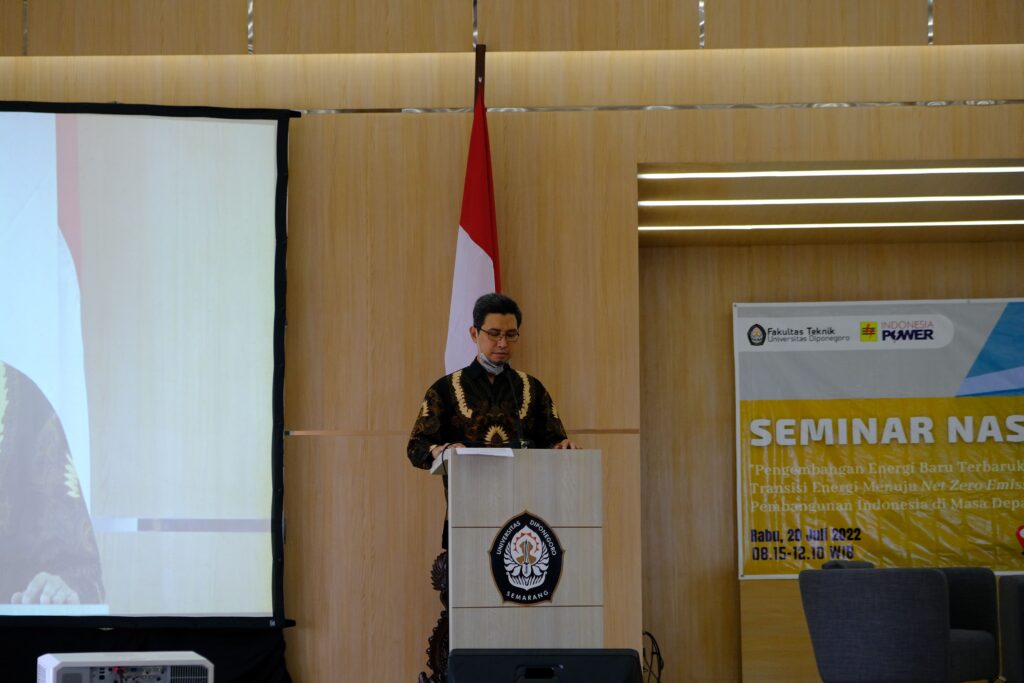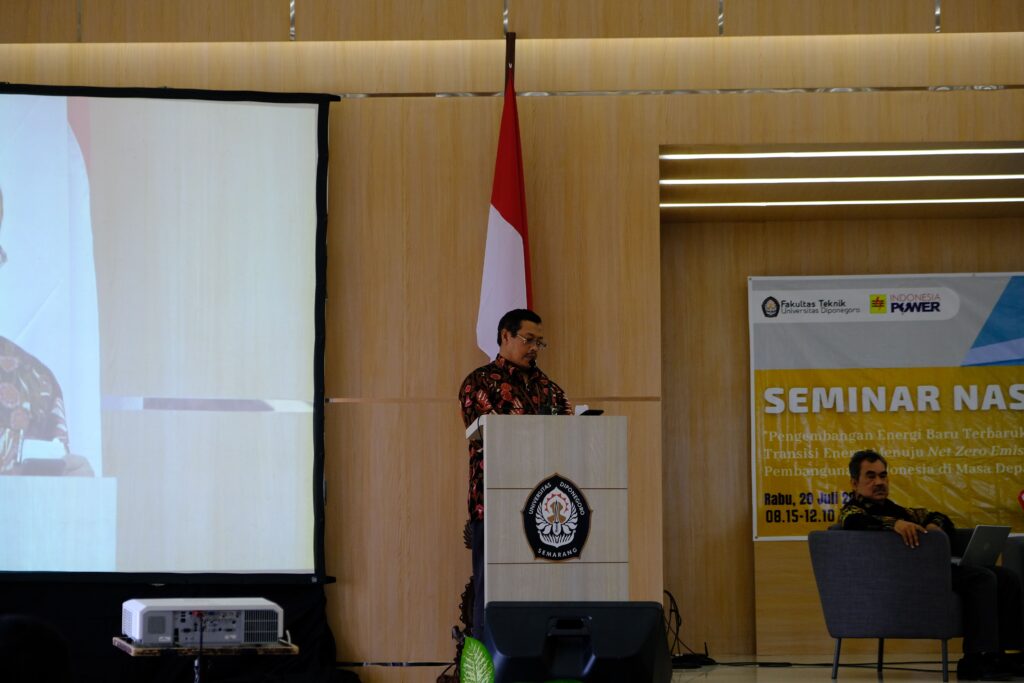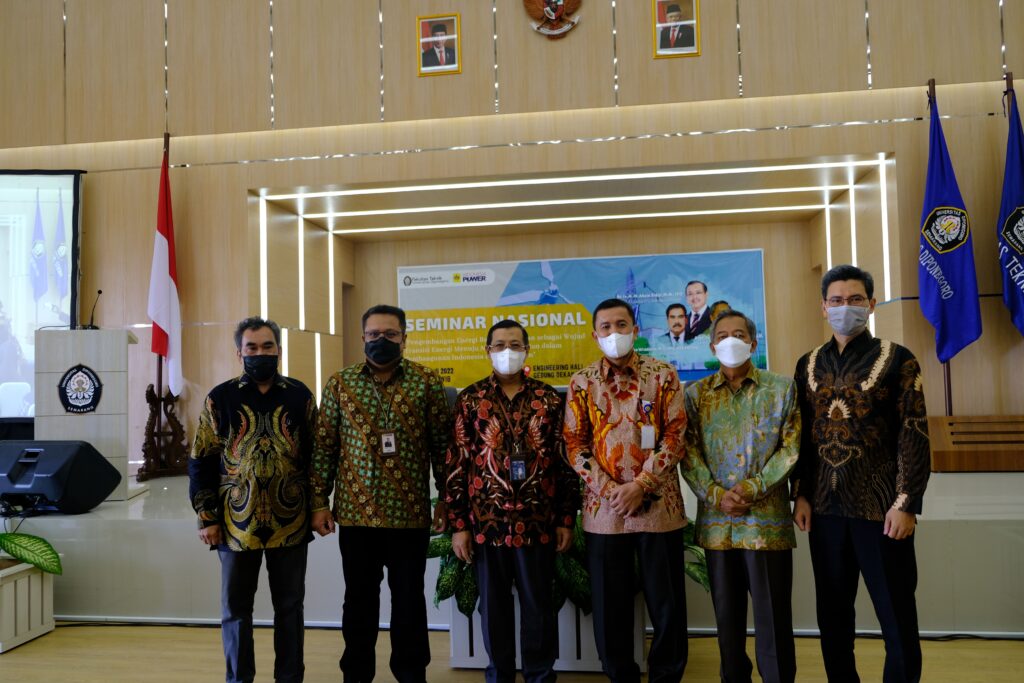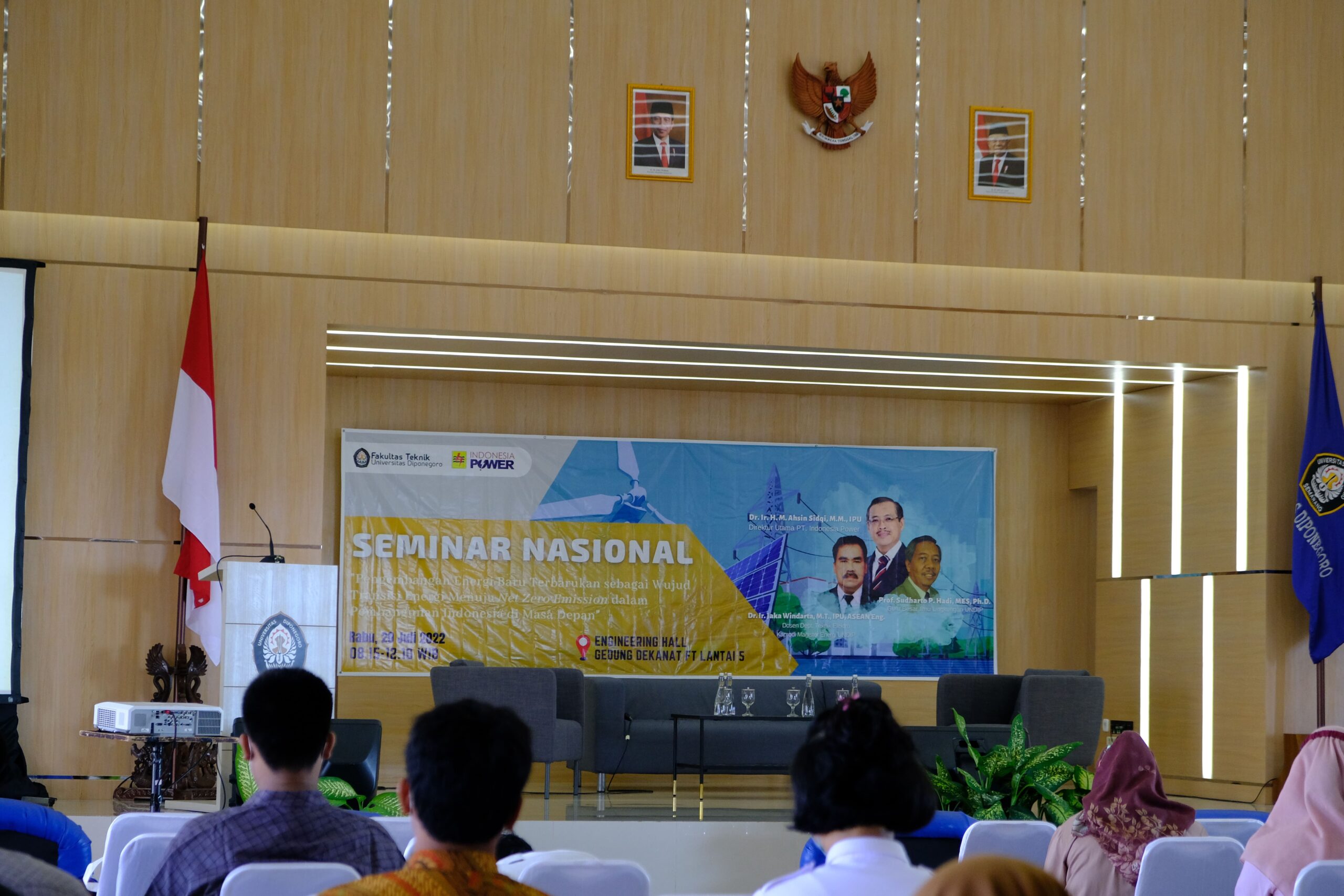The existence of massive technological developments in the modern era has now led to several using fossil energy in various fields such as household, transportation, electricity, and others. However, fossil energy consumption has contributed significantly to carbon emissions so that it has a negative impact on the environment, for example climate change and global warming which causes the temperature on earth to rise every year. Therefore, renewable energy innovations are needed to reduce carbon emissions and towards net zero emission.

It requires understanding and support from every element of society, including Higher Educational Institution that focuses on the environment and energy. Faculty of Engineering collaborated with PT. Indonesia Power held a seminar with the theme “Renewable Energy Development as Energy Transition Towards Net Zero Emission”.
Located at Engineering Hall, 5th Floor, Dean Building, it was attended by Dr. Budi P Samadikun, S.T., M.Sc. the Chairman of Committee, Dean of Undip Engineering Faculty Prof. Ir. M. Agung Wibowo, M.M., M.Sc., Ph.D., President Director of PT. Indonesia Power Dr. Ir. M. Ahsin Sidqi, M.M., IPU, Lecturer of Master of Energy in Electrical Engineering, Dr. Ir. Jaka Windarta, M.T., IPU, ASEAN Eng. Professor of Environmental Science Doctoral Program Prof. Sudharto P. Hadi, MES., Ph.D and the entire academic community of Diponegoro University.

The first presentation was given by Dr. Ir. M. Ahsin Sidqi, M.M., IPU regarding Indonesia’s development in preparing itself to welcome the clean energy market on a national and international scale. The next presentation was delivered by Dr. Ir. Jaka Windarta, M.T., IPU, ASEAN Eng. related to regulations and incentives that have been implemented by Indonesia. The last presentation was delivered by Prof. Sudharto P. Hadi, MES., Ph.D related to Indonesia’s potential in renewable energy and Indonesia’s opportunity to become a sustainable country. The presentation of material by each speaker was not only comprehensive but also relaxed. The speakers made this event livelier, interaction between the speakers and participants also made the discussion sessions more interesting.

The presentation materials, which were quite dynamic, produced a positive response from the participants, especially engineering students who gave follow-up questions related to the material presented. There were approximately seven questions that were the subject of interesting discussion. At the end of the event, the three best questioners were given induction stoves as prizes. The event closed with a musical performance by representatives of Environmental Engineering Students. It was hoped that the event can be sufficient provision for the academic community, especially students, to become agents of change in the future.

